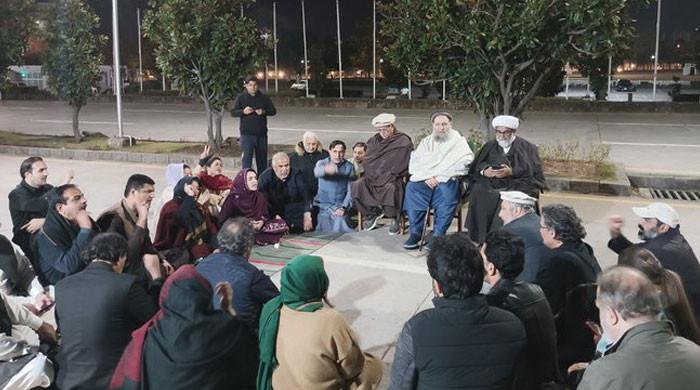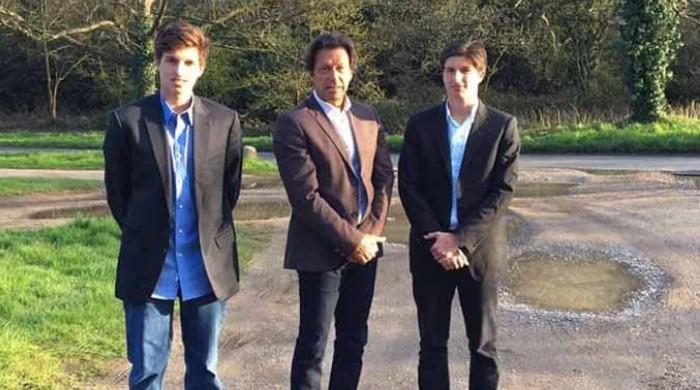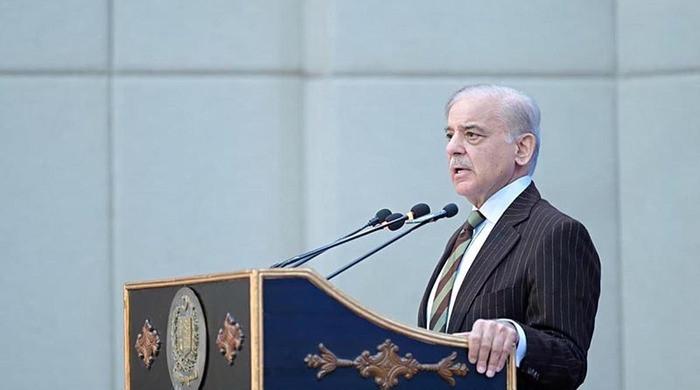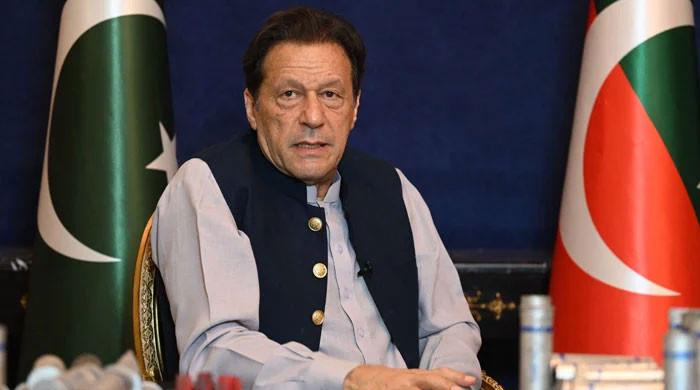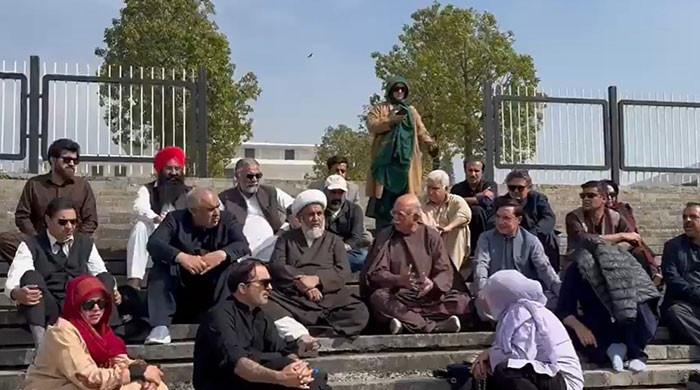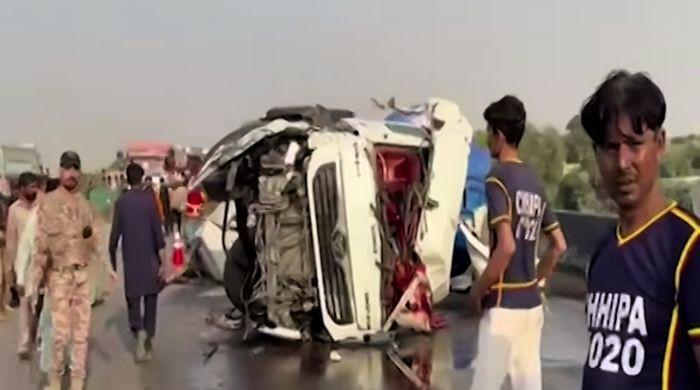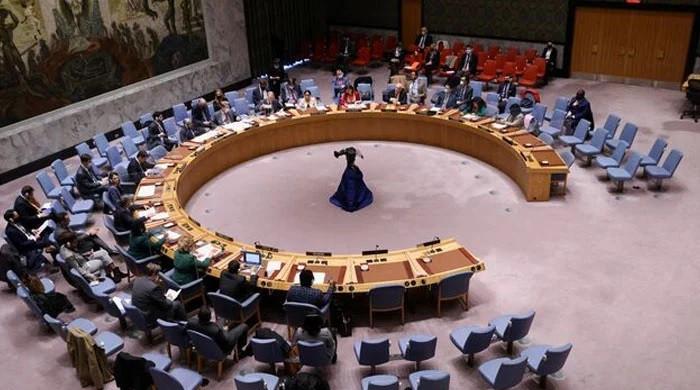Karachi, can you breathe?
Air pollution in Karachi is worse than that in Beijing, China
February 09, 2017
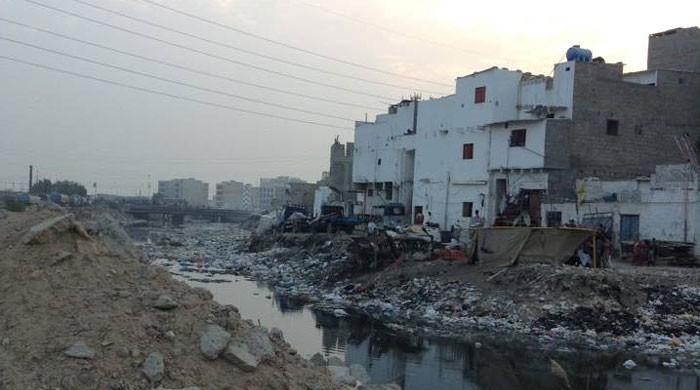
KARACHI: It is common for people to cover their faces while crossing a road jammed with smoke-chugging vehicles. But the measure cannot really protect the people of Karachi, as the air around them across the city is polluted to an alarming extent.
Air pollution in Karachi is worse than that in Beijing, China, according to a 2016 World Health Organization report.
Last year, the Chinese city was afflicted with an extended bout of noxious smog, forcing the government to shut down schools and offices. Since then Beijing, host to the 2022 Winter Olympics, has announced to spend $2.7 billion to fight air pollution by upgrading factories that use coal and to phase out old vehicles.
The report, titled WHO Global Urban Ambient Air Pollution Database, calculates Beijing’s PM2.5 readings – the level of fine particulate matter in the air small enough to lodge in the respiratory system - close to 80 micrograms per cubic meter. By the WHO guidelines, the concentration should not exceed 15 micrograms. In Karachi, it is touching 90.
Air pollution in the city has become worse in the last few years due to the absence of a local administration, explains Waqar Hussein, Director of the Environmental Protection Agency. Karachi held its latest local body elections in 2015, after a gap of 11 years. “There is a department that deals specifically with issues of the environment,” says Hussein, “but it had not been empowered in a while, which is why the sewage system and solid waste management is in a poor state today.”
The Sindh Solid Waste Management Board works under the local government. It’s managing director, A D Sanjnani, admits that the city should prohibit incineration as a mode of waste disposal, if it wants to clean up the foul air. “As of now, landfill sites are cleared by burning trash,” he tells Geo.TV. This releases harmful dioxins in the atmosphere. In November, the board and a Chinese company signed an agreement for garbage disposal. “Once the company starts collecting waste from people’s doorsteps, it will be recycled not burnt,” says Sanjnani.
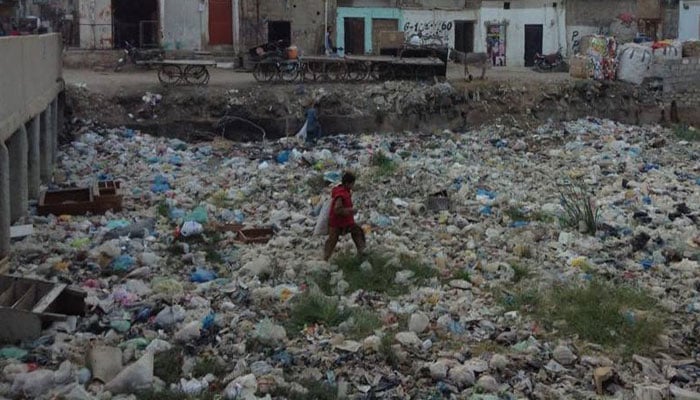
Another contributor to the city’s atmospheric conditions are the factories dotting Karachi, that emit hazardous smoke and substances, and the emissions from motor vehicles. Due to the dearth of public transportation, people are forced to commute in old, smoke-chugging vehicles. “There are no checks and balances on the rickshaws and buses adding to the air pollution,” says Dr. Moazzam Ali Khan, professor at the Institute of Environmental Studies, University of Karachi, “People have no choice but to use these cheap rides that might save money in the short run, but will cause wide-ranging health hazards in the long run.”
Then there is the population density, which acts as an amplifier of air pollution. A walk through any low-income neighbourhood in Karachi and one is confronted with piles of garbage lining the streets. According to the report, Demographia: World Urban Areas (2016), Karachi stands 12th in terms of urban population density. The city has 241,000 people in 945 square kilometres. Hyderabad comes in second. Although its population (2.9 million) is lesser than Karachi’s, there are 41,200 people living on each square kilometre of the 73-square-kilometre city.
Salma, a resident of the Qayyumabad area of Karachi, says she has been repeatedly promised that the trash outside her house will be removed. “Till someone comes to clear this up, people in this neighbourhood are suffering from all kinds of diseases. The garbage is a breeding ground for mosquitoes,” she explains.
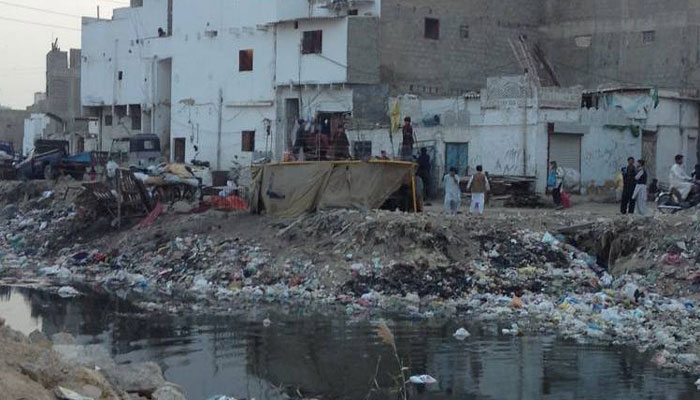
Admittedly, the provincial government needs to deliver, but for that, they also need Karachi’s help. Either the city’s resident ignore waste disposal rules or they lack the basic knowledge to keep the environment clean.
A while ago, people living in communities that are close to the coast, such as the Hawksbay area, began to cut down mangrove trees and sell its wood. The World Wide Fund for Nature-Pakistan stepped in to offer the families an alternate source of income, such as delivering food to cater to beach visitors.
In its report, the WHO warns that as urban air quality declines, the risk of stroke, heart disease, lung cancer, and chronic and acute respiratory diseases, including asthma, increases. But has Karachi, Pakistani's most populous city, accepted that it has a problem?




